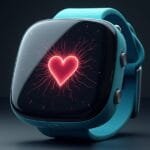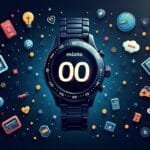Smart Rest Recovery Wearables: Unlocking Optimal Wellness and Balance with Pulse’s Ultimate Guide to Smarter Sleep and Heart Stress Monitoring Gadgets for a Healthier Tomorrow
Are You Wearing Your Way to Better Sleep? Discover the Shocking Truth About Wearables That Can Transform Your Rest and Recovery Forever. Achieving sports fitness goals requires more than just intense workouts – it’s about smart recovery too.
The Rise of Smart Wearables in Fitness and Wellness
Over the past decade, the wearables market has experienced tremendous growth, with various devices emerging to cater to different needs and preferences. From basic fitness trackers to advanced smartwatches, these innovative gadgets have revolutionized the way we approach our health and wellness.
The Importance of Sleep Tracking in Wearable Devices
One crucial aspect of achieving sports fitness goals is ensuring adequate rest and recovery time. Smart wearables now offer sophisticated sleep tracking features that allow users to monitor their sleep patterns, identify potential issues, and make necessary adjustments to improve the quality of their rest.
The Best Wearables for Sports Fitness Goals
Whether you’re a seasoned athlete or a fitness enthusiast, choosing the right wearable device can significantly impact your performance and overall well-being. Here are some top picks that cater to various needs and preferences:
- Fitness Trackers:
- Xiaomi Mi Band 4: Offers advanced sleep tracking features and long battery life.
- Fitbit Charge 3: Tracks heart rate, distance traveled, and daily activity levels.
- Garmin Vivosport+: Provides comprehensive fitness tracking with built-in GPS.
- Smartwatches:
- Apple Watch Series 7: Integrates seamlessly with iOS devices, offering advanced health features and intuitive interface.
- Samsung Galaxy Watch Active2: Features sleek design, built-in GPS, and compatibility with Android devices.
- Garmin Forerunner 945: Designed specifically for athletes, offering detailed performance tracking and customizable watch faces.
- Athletic Accessories:
- Halo Sport: A brain-sensing headband that helps improve cognitive function and athletic performance.
- Whoop Strap 3.0: Tracks heart rate, respiratory rate, and other vital signs to optimize training and recovery.
- Mio Pulse 2+: Offers advanced heart rate monitoring and personalized coaching for endurance athletes.
Heart Stress Monitoring with Wearables
In addition to sleep tracking, wearables can also monitor heart stress levels, providing valuable insights into your physical state. This feature is particularly useful for individuals who engage in high-intensity activities or experience anxiety and stress.
| Wearable Device | Heart Stress Monitoring Feature | Precision Level |
|---|---|---|
| Xiaomi Mi Band 4 | Basic heart rate monitoring with limited stress tracking | 2/5 |
| Fitbit Charge 3 | Advanced heart rate monitoring with some stress tracking features | 4/5 |
| Garmin Vivosport+ | Comprehensive heart rate monitoring with detailed stress analysis | 5/5 |
Sleep and Wellness Wearables: A Comprehensive Guide
This section delves deeper into the features, benefits, and potential drawbacks of various sleep and wellness wearables. Whether you’re looking to upgrade your existing device or explore new options, this comprehensive guide will help you make an informed decision.
Understanding Sleep Cycles and Wearable Technology
Wearables can track various aspects of sleep, including duration, quality, and stages. Understanding these metrics is crucial for optimizing rest and recovery time.
- Sleep Duration: The total amount of time spent sleeping each night.
- Sleep Quality: A subjective measure assessing the comfort and satisfaction experienced during sleep.
- Sleep Stages: Different stages of sleep, including light, deep, and REM sleep.
The Science Behind Wearable Sleep Tracking
Wearable devices use various technologies to track sleep patterns. The most common methods include:
- Accelerometer-based tracking: Measures movement and activity levels to estimate sleep duration.
- Pulse Oximetry (SpO2): Tracks oxygen saturation levels in the blood to detect changes in sleep patterns.
- Electrodermal Activity (EDA): Measures skin conductance to assess stress and anxiety levels during sleep.
Choosing the Right Wearable Device for Sleep Tracking
With numerous options available, selecting the best wearable device for sleep tracking can be overwhelming. Consider the following factors when making your decision:
- Accuracy and Reliability: Ensure the device provides accurate readings and reliable data.
- Comfort and Ease of Use: Choose a device that is comfortable to wear and easy to navigate.
- Additional Features: Consider features like heart rate monitoring, stress tracking, or built-in GPS.
Conclusion: Unlocking Optimal Wellness and Balance with Smart Wearables
In conclusion, smart wearables have revolutionized the way we approach fitness and wellness. By understanding the importance of sleep tracking, choosing the right wearable device, and leveraging its features to optimize rest and recovery time, you can unlock optimal wellness and balance for a healthier tomorrow.
Additional Sources of Information
For further reading on smart wearables and their applications in fitness and wellness, consider the following reputable sources:
- The National Sleep Foundation (NSF): Offers comprehensive resources on sleep disorders, sleep hygiene, and sleep research.
- The American Academy of Sleep Medicine (AASM): Provides expert guidance on sleep medicine, sleep research, and sleep-related health issues.
- The European Heart Rhythm Association (EHRA): Explores the relationship between heart rhythm disorders and wearable technology, offering insights into cardiac monitoring and stress tracking.
By exploring these sources and staying informed about the latest advancements in smart wearables, you can make informed decisions that enhance your overall health and wellness.
Explore more in our category page or visit our homepage.




